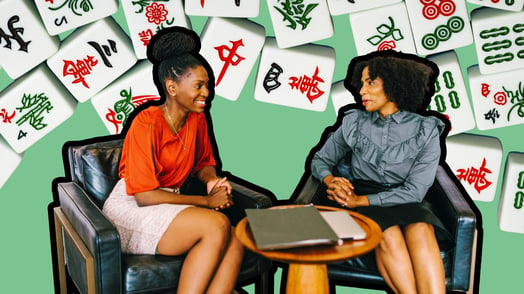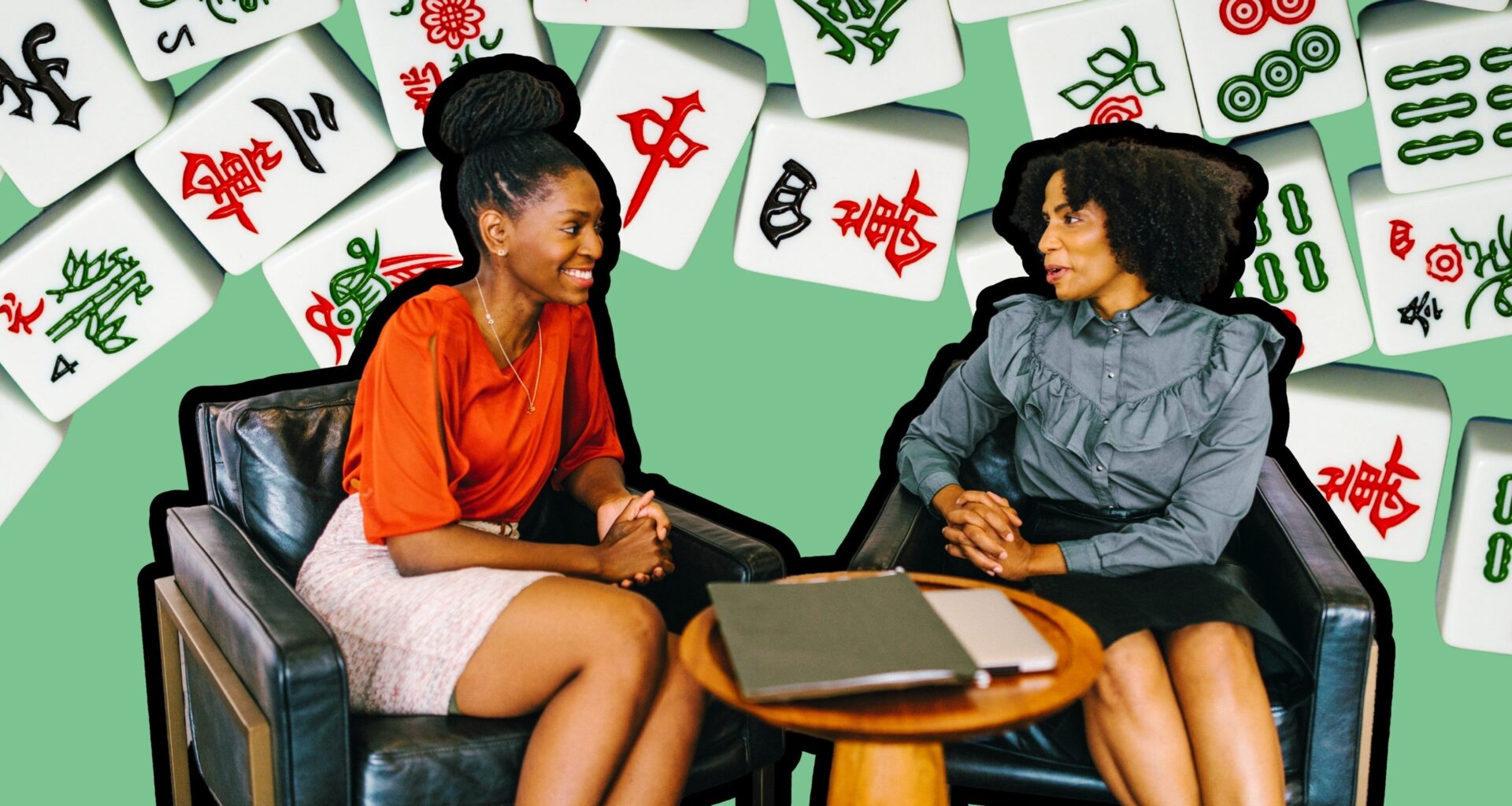Mahjong, with roots in 19th-century China and long considered a grandma’s game, has made a comeback in recent years, rebranded as a trendy social activity for a new generation of Gen Z and millennial players.

Today, mahjong is a ~$2.6B global industry that’s expected to reach $4B+ by 2032.
It’s showing up in spaces like DJ-ed parties in LA and luxury hotels in New York.
Fueling its popularity: mainstream media like Crazy Rich Asians (2018), renewed interest in board games, and sustained post-pandemic demand for in-person experiences.
But it’s not all just fun and games, and its appeal has now reached another demographic looking to connect: female founders.
Work hard, play hard — but at the same time
Digital events platform Evite reported a 46% YoY increase this year in mahjong events, a trend Evite data analyst Olivia Pollock told Inc is gaining traction in networking settings.
And it’s especially popular among women entrepreneurs. Per Inc:
Everhem founder Haley Weidenbaum enjoyed her introduction to mahjong so much, she’s considering it as a team-building activity for her remote employees.
Ariel Kaye, founder of bedding brand Parachute, after hosting a successful mahjong night with 20+ other female founders in May, is planning to host another.
Austin-based entrepreneur Elizabeth McCormick hosted her first mahjong party this summer with four people. Now she has ~30-person guest lists for her biweekly meetups.
For some women entrepreneurs, though…
… mahjong is generating more than just new professional connections.
Take Angie Lin, for example: a Taiwanese-American founder whose newly launched startup East Never Loses organizes mahjong events around LA.
In 2022, she went from teaching friends how to play, to hosting mahjong house parties, which eventually turned into 200-person, ticketed warehouse events held every few months. Then, when celebrities started reaching out about hosting private parties, Lin told Inc she decided to quit her marketing job and go all in on the venture.
One year in, her company now hosts as many as 14 mahjong experiences a month, including public, private, and corporate events — all thanks to a newfound interest in an old-school game.
Fun fact: Mahjong’s connection to female entrepreneurship runs deeper than you’d think— in the early 1900s, when the game was first introduced in the US, teaching it was one of the few socially acceptable opportunities Chinese-American women had to make money.

